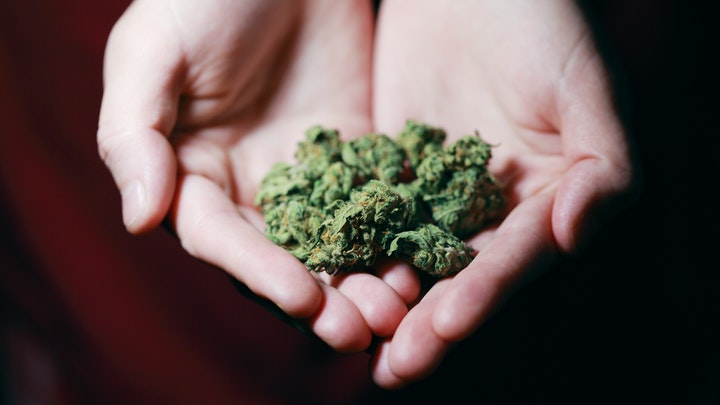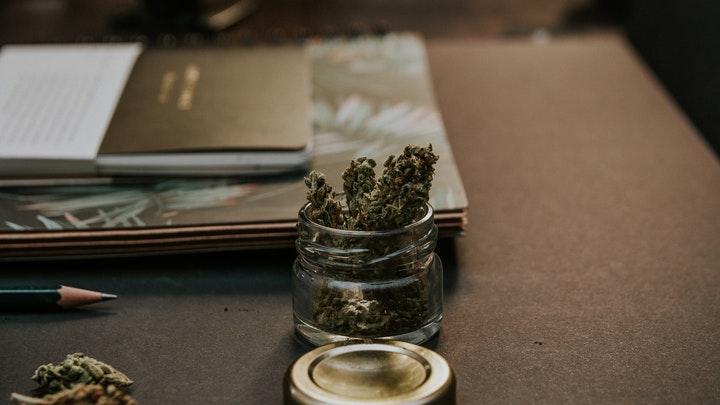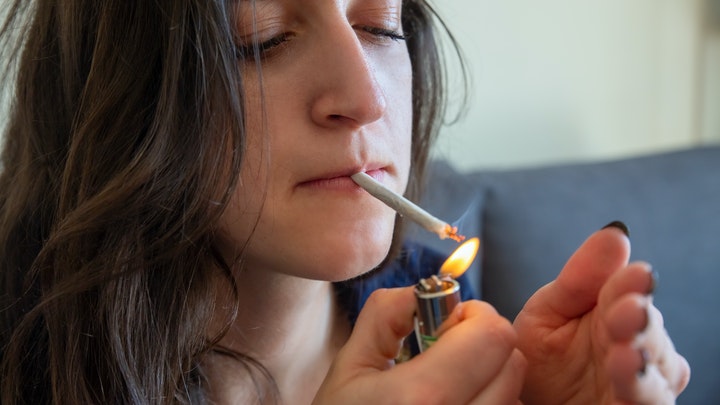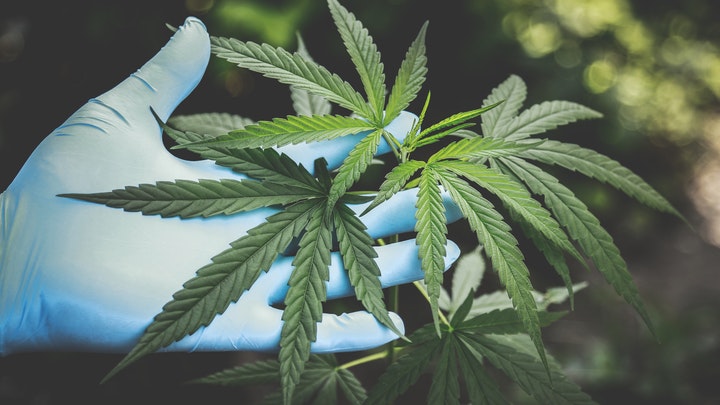It’s a commonly held, though mistaken, belief that the use of cannabis is harmless.
Especially among younger groups, people see cannabis as being the equivalent to alcohol, which is another substance which people aren’t fully aware of the risks.
In order to dispel some myths, it’s worth outlining exactly what cannabis is, how it’s used, and the effect it has both mentally and physically.

Cannabis is a drug which is derived from a plant called Cannabis Sativa. The drug is made from the leaves of the plant, which contain psychoactive compounds.
When ingested, these compounds give you a high. There are many ways in which you can ingest cannabis, and generally, they all give you the same effect.
The most common way to use cannabis is to smoke the dried leaves either from a pipe, rolled into a cigarette, or from a piece of equipment called a bong.
Alternatively, the drug can be consumed by being baked into something, like a cake or a brownie. This is called an edible, and the impact of edible kicks in much more slowly because it takes longer for it to enter the bloodstream.
Though it is an illicit drug in the UK, cannabis is still widely used. In fact, it is the most commonly used illicit drug in the UK, and over 200 tonnes of the product are sold to buyers each year.

The high from cannabis is achieved due to the presence of the psychoactive compound THC.
This is a cannabinoid, like the more commonly known CBD (which is also present in cannabis) and the more THC there is in the cannabis you are using, the higher the impact will be of the drug.
The THC will enter your bloodstream when ingested and will be transported to the brain where it will stick to your receptors.

The high will impact your mood and your behaviour, usually making you feel giddy and relaxed. Perhaps you will find you’re more talkative and more open and honest.
You can also find that you experience stimuli like colours, and sound more sharply which can be pleasant.
However, there are also some unwanted effects of cannabis that can make an experience with the drug less positive.
The THC can cause feelings of anxiety and paranoia, and you may even experience visual or auditory hallucinations. You could also find that you become disorientated, not knowing where you are or who you’re with.

Because the THC sticks to the receptors in your brain, using the drug does have an impact on your brain and cognition in the short-term and the long-term.
In the short term, the drug will impair your ability to form short-term memories. This will add to a sense of disorientation and could mean that you remember very little or nothing at all from the experience of being high.
In the long-term, continued use of the drug can shape the brain development of young people, if they begin use of the drug before their brains have fully matured.
The drug can hamper the development of the prefrontal cortex, which assists in rational decision-making.
It can also change the development of the hippocampus, leading to a decline in your long-term memory in adulthood, if you used the drug regularly during your youth.

The connection between cannabis and mental health is still ambiguous. However, early research has in fact linked the drug to the development of mental health conditions like depression, anxiety, psychosis, and schizophrenia.
In the case of psychosis and schizophrenia, it is believed that the THC in the drug can trigger the development of the illnesses if you have a genetic vulnerability to the illnesses through your family history.
Both illnesses are very serious, and they can cause a person to hallucinate, have strong feelings of paranoia, and hear disturbing voices.
The development of the illnesses is more likely if the drug is used during your youth and teenage years. The exact reason why, and the reason behind the links between cannabis and these mental illnesses, isn’t well understood by researchers.
However, there is enough evidence to make it clear that if you believe you may be vulnerable to the development of psychosis or schizophrenia, you should steer well clear of the drug, especially during your younger years.

Plenty of research over the past decades has assessed the relationships between cannabis and depression. This is because it is widely believed that mental health condition is strongly correlated with the use of the drug.
However, the direction of the relationship between cannabis and depression is less clear than the relationship between the drug and psychotic illnesses.
While the two are clearly linked, researchers are still unclear as to whether cannabis itself can cause clinical depression directly.

People who use cannabis are more likely to have depression than people who don’t. This is especially true in children, teenagers, and young adults.
However, though this might sound clear, it doesn’t necessarily mean that using cannabis causes depression.
Instead, it means that there is a very complicated relationship between cannabis use and depression. The big question is how to two impacts each other.
Some researchers have suggested that the reason the relationship exists is that people who already have depression are more likely to seek out cannabis.
The exact reason why this would be isn’t clear. Other researchers say that the use of cannabis itself triggers depression, but they’re unable to come up with a concrete reason why. Meanwhile, some researchers argue that it is likely to be a combination of the two factors.
Do people who already have depression use cannabis to try and reduce their symptoms, causing the link? Or, do people who aren’t depressed become depressed by the use of cannabis?
Overall, there is not yet enough evidence to say definitively which of these statements is true, and there needs to be much more research conducted on the topic before it’s possible to come up with an answer either way.
However, it is abundantly clear that there is a link between cannabis and depression, so if you’re going to be cautious, it would be advisable not to use cannabis to protect your mental health and well-being.

Some people mistakenly believe that the use of cannabis actually reduces feelings of depression. This isn’t true, and the research shows that any decrease in depressive feelings from the use of cannabis is likely to be short-term.
This misunderstanding likely comes from the fact that cannabis can produce a happy, chilled-out feeling during the high.
However, the CBD compound in cannabis, when isolated from the drug, could be useful in treating depression and symptoms of depression.
CBD has been recognised as having some medical benefits in certain contexts, such as a reduction in the risk of epilepsy, and research is being conducted on how it related to treatment for depression, and whether or not it should be recommended.
The conclusion so far has been that there is no strong association between CBD and a reduction in depressive thoughts.
Certainly, the compound is far off from becoming an officially supported medicinal treatment, and research continues to be conducted on the topic in order to find out more.

Nevertheless, this hasn’t stopped people from using cannabis as a form of self-medication.
This is because the drug could offer temporary relief from negative thoughts for some people, though for others the THC is likely to worsen feelings of depression due to an increased sense of anxiety and paranoia.
Cannabis is not a medically recognised treatment for depression, or other mental health conditions yet. In fact, with its links to the development of psychosis, schizophrenia, depression, and feelings of anxiety, it is likely to make any mental health conditions worse rather than better for the majority of people.
Self-medication also comes with the risk of addiction, especially if you’re using the drug as a teenager. If you are using cannabis in order to temporarily dispel negative feelings in the short term, it is possible to rely on the use of the drug for daily functioning.
Not only is this likely to be damaging and counterproductive in the long-term for your physical and mental health, but you’re putting yourself at increased risk of addiction.

Worryingly, cannabis has also been linked to the progression of suicidal ideations.
Some studies have pointed to a relationship between use of the drug and an increased risk of suicidal thoughts in young people, and in people who use the drug recreationally who already suffer from depression.
More research is required to better understand this, as it isn’t clear what the use of cannabis could cause these thoughts and feelings.
However, this is where the research currently points, and until it is much better understood, this makes it even less recommended to use cannabis if you’re concerned about your mental health, even for self-medication.

[1] Cannabis and depression
https://pubmed.ncbi.nlm.nih.gov/33332004/
[2] Effects of cannabis on the adolescent brain